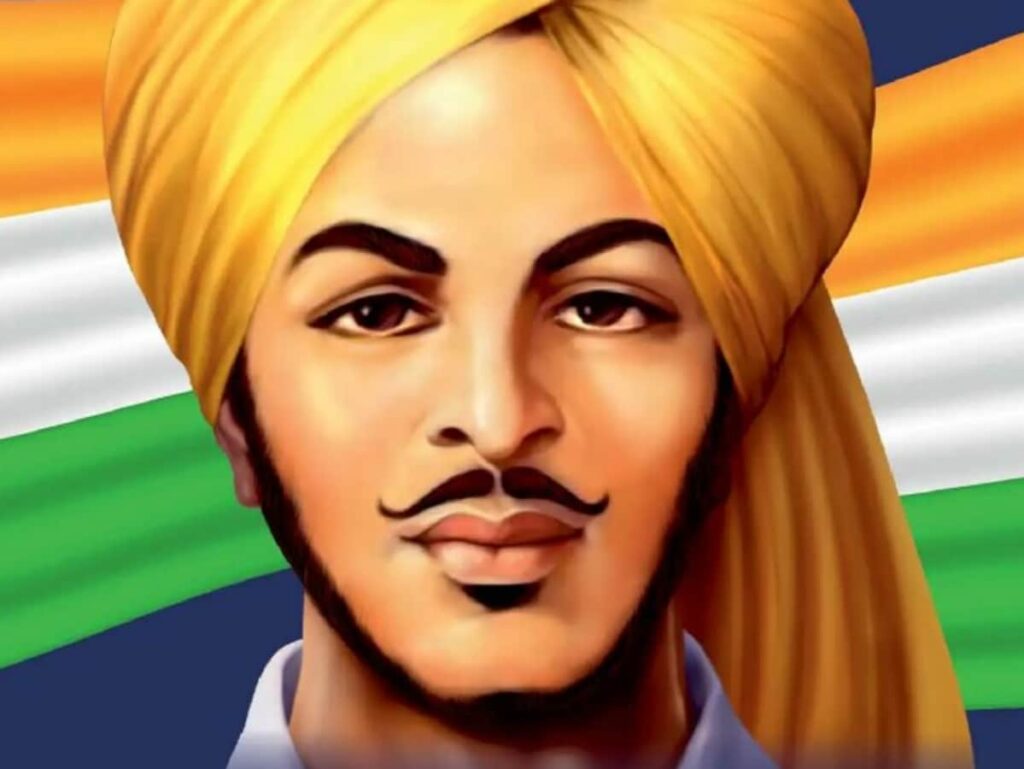Bhagat Singh, one of the most iconic figures in the Indian independence movement, was born on September 27, 1907. His revolutionary activities and fearless demeanor have inspired countless individuals and movements, making him a revered symbol of resistance against colonial rule. This article explores Bhagat Singh’s life, ideologies, and enduring legacy in both Indian history and global discussions on freedom and justice.
Early Life and Influences
Bhagat Singh was born in Banga, a village in the Lyallpur district of present-day Faisalabad, Pakistan. He was born into a Sikh family active in the freedom struggle against British rule, which greatly influenced his early life. Singh’s family background provided him with a strong sense of nationalism and justice, shaping his ideologies from a young age.
Education and Political Awakening
Bhagat Singh was an avid reader and was particularly influenced by the works of revolutionary thinkers and authors. His education at the National College in Lahore exposed him to radical ideas, and he became deeply involved in anti-colonial politics.
Participation in the Freedom Movement
By the time he was a teenager, Singh was actively participating in protests and rallies. His strong disdain for British rule led him to join various revolutionary groups, including the Hindustan Socialist Republican Association (HSRA). Singh’s political activism was characterized by a commitment to radical change and a belief in revolutionary violence as a means to achieve independence.
Legacy of Sacrifice
Bhagat Singh’s most famous act of defiance came on April 8, 1929, when he and his fellow revolutionary Batukeshwar Dutt threw non-lethal bombs in the Central Legislative Assembly in Delhi. Their goal was to make a statement against repressive laws and to promote the idea of revolution. Both were arrested and used the trial as a platform to espouse their revolutionary ideals.
Execution and Martyrdom
On March 23, 1931, Bhagat Singh, along with Rajguru and Sukhdev, was executed by the British government. His execution sparked widespread protests across the country and further galvanized the freedom movement. Singh’s martyrdom transformed him into a national hero, symbolizing courage and the fight against oppression.
Impact on Modern India
Bhagat Singh remains a significant figure in contemporary India. His ideas on socialism and revolution continue to inspire political movements and activists. Institutions, streets, and numerous books and films have been dedicated to his life, further cementing his status in Indian culture.
Commemoration
| Event | Date | Description |
|---|---|---|
| Birth Anniversary | September 27 | Celebrations held across the nation to honor Bhagat Singh’s contributions. |
| Martyrdom Day | March 23 | Nationwide observances that reflect on his sacrifice and legacy. |
Conclusion
Bhagat Singh’s life and dedication to the cause of freedom exemplify the spirit of self-sacrifice and revolution. His unwavering commitment to justice and equality continues to resonate today, making him an enduring symbol of resistance against tyranny. As we celebrate his birth anniversary and honor his legacy, it is essential to reflect on the values he championed and their relevance in today’s socio-political landscape.
